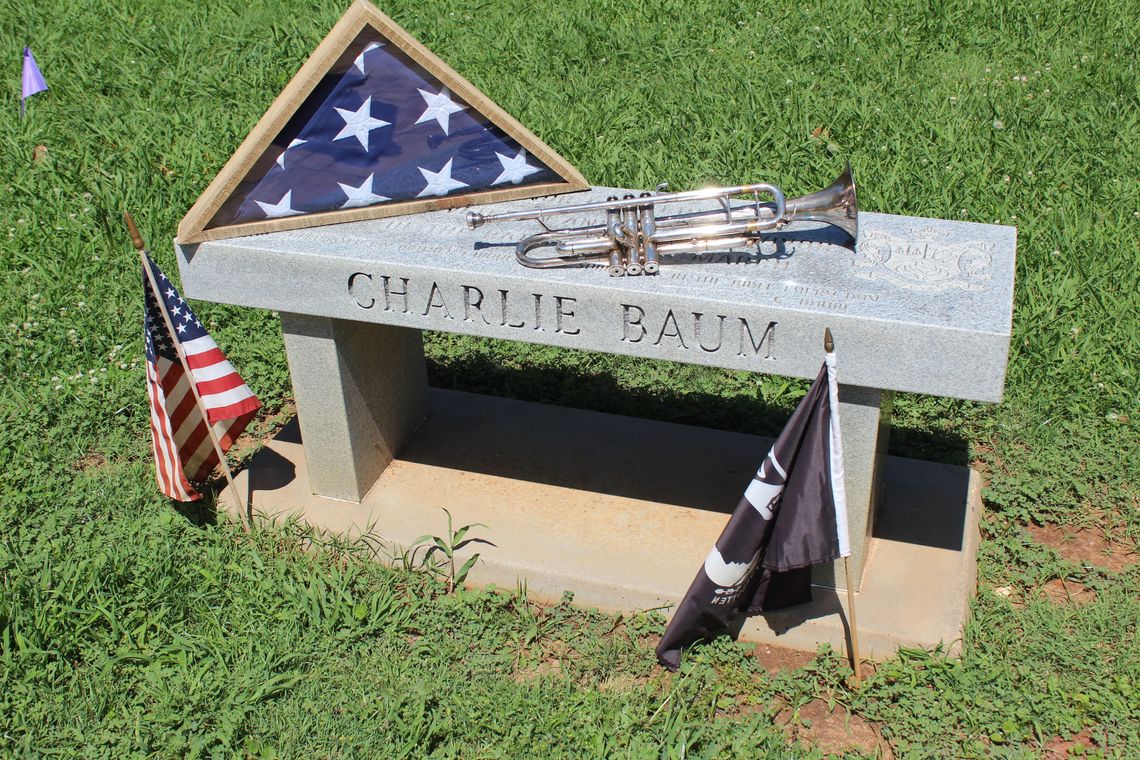I was at an impasse last night.
Jennifer and I both have unread books stacked all around our nightstands. Having just finished a book, I was at a loss for what title to start next.
I read the first few pages of a few, and nothing hooked me. I’m not saying the same books won’t hook me later— they just didn’t last night. Then I grabbed one that had been sitting there for a while— “Rayburn: A Biography” by D.B. Hardeman and Donald C. Bacon. It was published in 1987 and serves as a definitive biography of the North Texas native who holds the record for the longest tenure as the Speaker of the United States House of Representatives.
I picked it up at a used bookstore some time ago and had yet to crack it open. I am now sorry I’ve waited so long. I was hooked and enthralled. I’m sure I’ll be sharing insights from this book in future columns, but it reminded me of a column I first penned a few years ago that refers to Mr. Sam. I feel behooved to share it with you again:
Charles Baum was a friend of mine. He was born, at Whitesboro, in 1917. He was the grandfather of a childhood friend and a lifelong public servant.
Charlie was in the Philippines when Bataan fell. Subsequently, he was captured and spent most of World War II as a prisoner of war. He was one of few Americans who survived the Bataan Death March before being liberated in September 1945.
We spent endless childhood hours listening to Charlie retell his POW experience. Many of you, who grew up here, did as well.
It wasn’t always easy for him to tell, and it wasn’t always easy for us to hear. But it was imperative they were told. It was from Charlie Baum, and these stories, I learned it is okay for a grown man to cry.
I got to know Charlie in another sense, later, as an adult. That childhood friend, his grandson, died unexpectedly at the age of 20. We grieved together.
A few years later, I came back here to manage the hometown newspaper, and I joined the Rotary Club. I was the youngest member. Charlie was the oldest. He was the elder statesman and many was the club meeting that ended with Charlie telling stories about how our little town once was — over lunch, of course.
After the war, Charlie came home and married his sweetheart. He graduated from Austin College, was appointed postmaster, served on the County Draft Board and eventually became a teacher and a coach. One of my favorite Charlie Baum stories did not come from his time as a soldier. Rather it occurred when he was postmaster.
In 1951, Congressman Sam Rayburn appointed Charlie postmaster of Whitesboro, Texas. I suppose postmaster appointments are still officially made by congressmen nowadays, but it was much more of a hand-selected process back then. As far as Mr. Sam was concerned, Charlie Baum, War Hero, was the right man to oversee the only federal office in Whitesboro.
His postmaster duties included driving to Bonham every month to meet with Mr. Sam himself.
I don’t know much about the inner workings of today’s postal service and Congress, but I doubt each postmaster is expected to meet with their congressman once a month. It was a different time.
Charlie told me, upon one trip to Bonham, he arrived early and was asked to wait in the reception area. This was in the early 1950s. He said there was an older man ahead of him. They struck up a conversation.
“I am the postmaster in Whitesboro,” Charlie told the stranger.
“Oh yes,” the man said. “Charles Baum — I know who you are. I remember reading the newspaper stories about you in the war. I know Mr. Sam has been very pleased with your work in Whitesboro.”
Charlie said, from there, the old stranger talked about every rancher in Western Grayson County and how many head he owned. He knew every farmer’s name and how many acres he had planted. He knew the name of every oilman and how many rigs he had producing.
“We had a real nice conversation,” Charlie told me. “Then, the man left for his appointment with Mr. Sam. I never got his name, but as soon as he left the room, I realized I had just been talking to Senator Lyndon Johnson.”
Can you imagine a time when senators and congressmen actually met and talked to one another? Can you imagine a time when a senator actually knew the name, and biography, of the postmaster in a small hamlet well outside of Dallas, Austin or Houston? More than anything, can you imagine a time when your United States Senator actually knew the names of, and details about, each rancher, farmer and oilman in some random part of the state?
This all harkens to a time when folks actually talked to one another, and public service was considered the highest honor bestowed upon a person. It is a time and place our nation needs to get back to — before it is too late.
Not all of us can be Lyndon Johnson or Sam Rayburn. But every one of us can be a Charlie Baum. That is, every one of us can dedicate our work, and our lives, to our community.
Every one of us can find ways to help our neighbors. Every one of us can tell important stories or our experiences to the young people in our lives. Every one of us can be like Charlie
Baum. It starts with us.
If we can be more like Charlie, the Lyndons and Sams will follow.
Charlie died in 2013. When he did, he reminded me (again) it is okay for a grown man to cry.

